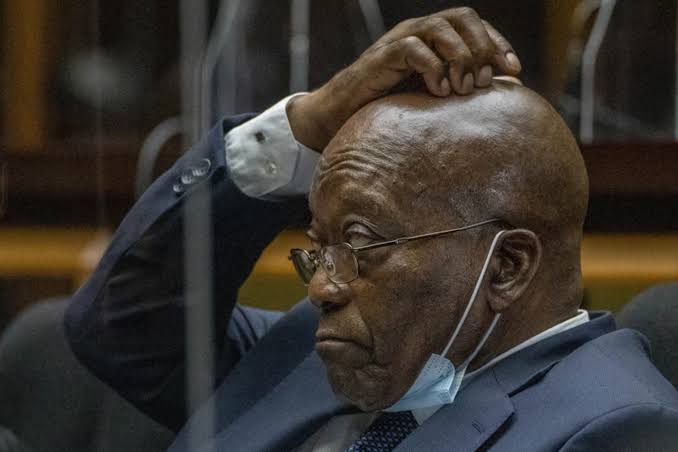News
MK Party Blasts Government for “Claiming Credit” on Zuma’s Nuclear Vision

MK Party Slams Government Over Nuclear Energy Plans, Points to Zuma’s Legacy
South Africa is set to revive its modular nuclear energy programme, but the move has sparked fresh controversy. The MK party is up in arms, claiming the Government of National Unity (GNU) is taking credit for an initiative originally championed by former president Jacob Zuma back in 2010.
Cabinet recently approved lifting the state of care maintenance on the Pebble Bed Modular Reactor (PBMR), a step seen as positioning the country back at the forefront of nuclear technology. Minister of Energy and Electricity, Dr Kgosientsho Ramokgopa, told journalists that South Africa would reclaim its “rightful place” as a key player on the nuclear fuel cycle.
“We are confident that over time, we’ll be a dominant and indispensable player on the nuclear side,” Ramokgopa said.
MK Party: “A Vision Stalled, Now Claimed by the GNU”
Despite government optimism, the MK party says this decision is a case of political opportunism. Spokesperson Nhlamulo Ndhlela argued that the GNU is retroactively taking credit for a programme that Zuma had pushed for more than a decade ago.
“It is regrettable that, at a time when President Zuma had the strategic vision and resources to pursue this critical nuclear build, the process was blocked by legal and political challenges,” Ndhlela said.
The party claims these delays have denied South Africans access to reliable energy, slowed economic growth, and hampered progress in sectors such as education and infrastructure.
“A programme once dismissed as unaffordable has now been approved but at a far higher cost than it would have been during Zuma’s tenure,” Ndhlela added.
Energy Affordability Debate
The MK party also challenged the GNU’s claim that nuclear energy is unaffordable. With South Africa now facing an acute energy shortage, the party argues that the country needs large-scale intervention and that the revised Integrated Resource Plan, which includes R2.23 trillion in energy-sector investment, proves the government can finance such initiatives.
“The claims that South Africa could not afford nuclear energy are no longer valid,” Ndhlela said, expressing frustration that a visionary policy from the Zuma era is only now moving forward under costlier and more challenging conditions.
A Controversial Legacy: Zuma and the Russian Nuclear Deal
The controversy around nuclear energy isn’t new. During Zuma’s presidency, he signed a highly contested nuclear agreement with Russia, which aimed to create a full-scale nuclear cluster in South Africa, spanning fuel cycle operations and engineering.
However, the deal was declared unlawful in 2017 by the Western Cape High Court after NGOs challenged the agreement, citing excessive tax exemptions and potential strain on South Africa’s fiscus.
A later academic report on state capture suggested Zuma prioritized the nuclear deal as part of a broader effort to consolidate a rent-seeking system, highlighting the complex entanglement of constitutional and shadow state interests.
With the Pebble Bed Modular Reactor now active, South Africa could finally see a modern, homegrown nuclear programme, potentially positioning the country as a regional energy leader. Yet, the debate over political credit, historical mismanagement, and financial viability shows that nuclear energy remains as much a political battleground as it is a technological challenge.
{Source: The Citizen}
Follow Joburg ETC on Facebook, Twitter , TikTok and Instagram
For more News in Johannesburg, visit joburgetc.com


























